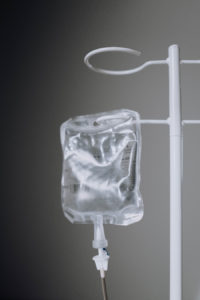 If you need a complex treatment or multiple dental procedures, your dentist may recommend IV sedation. Although you might believe you only have one option, there are 4 types of conscious sedation your dentist can use to keep you comfortable. While they might provide similar effects, not all may be right for you. Here’s what you need to know about the most common IV dental sedatives to help you sit back and relax while in the dental chair.
If you need a complex treatment or multiple dental procedures, your dentist may recommend IV sedation. Although you might believe you only have one option, there are 4 types of conscious sedation your dentist can use to keep you comfortable. While they might provide similar effects, not all may be right for you. Here’s what you need to know about the most common IV dental sedatives to help you sit back and relax while in the dental chair.
1. Midazolam
Midazolam is derived from a class of drugs called benzodiazepines, which are often used in dental sedatives. It’s beneficial for patients who have dental-related fears or phobias because it causes anxiety reduction and memory loss. Midazolam is safe for most patients because it has minimal effects on the heart or lungs. The sedative is injected into a vein and takes effect within 2-3 minutes. Generally, it lasts for about 60-120 minutes.
2. Propofol
Propofol is another injectable sedative that gets to work quickly, typically within 90 to 100 seconds. However, its effects also dissipate quickly, so it will need to be administered continuously throughout your procedure. This gives your dentist greater control over the amount administered to cater to your specific needs. Propofol contains soybean oil, glycerol, and egg lecithin, which can cause minor pain if not mixed with an anesthetic.
3. Ketamine
Ketamine is derived from phencyclidine, which is a psychedelic drug. It can relieve pain and cause memory loss, so you may not remember your procedure. After it is injected into a vein, the effects will begin in about 60 seconds. One dose lasts for 5-10 minutes, depending on the amount administered. As a result, it’s often recommended for shorter procedures; however, it can be combined with other drugs to offer additional benefits.
4. Dexmedetomidine
Dexmedetomidine differs from the previous sedatives because it causes a sleep pattern that’s like normal sleep. Although you’ll doze off, you can still respond to verbal cues from your dental team. Low doses are given intravenously to minimize any adverse reactions.
Although dental sedation is safe for most patients when administered by a trained professional, there can be risks for some people with underlying health conditions or taking specific medications. Your dentist will review your medical history and any prescribed or OTC medications you’re taking to look for any concerns. They’ll recommend the safest and most effective option for you.
No matter the type used, you’ll be monitored closely during your appointment to intervene quickly at the first sign of a problem, which is rare. Whether you need a root canal, tooth extraction, or dental implant, you can enjoy a pain-free appointment.
About Dr. TJ Sprague
Dr. Sprague achieved his dental degree from the University of Oklahoma Health Science Center, where he received multiple awards for excellence. He regularly pursues continuing education to provide advanced services, like sedation dentistry. If you’re interested in adding IV sedation to your treatment plan, contact our office today to request your consultation.
